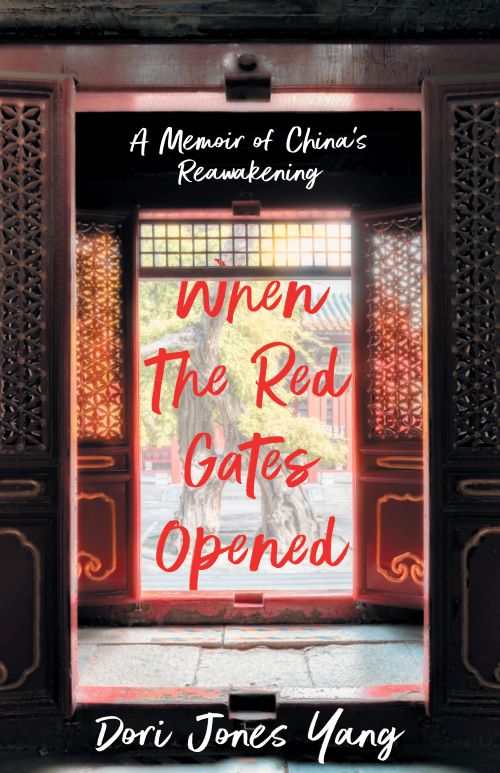President Joe Biden has made it clear: central to many of his policies is the scapegoating of China. That could prove to be a big mistake.
To achieve his domestic goals, this policy has benefits. Like presidents before him, Biden finds it useful to play up an external challenge to drum up domestic support. China, Biden says, is “racing ahead” of us, “attempting to own the future.” By highlighting the challenge from a rising China, Biden hopes to strengthen his case to convince Congress to allocate more money for research and development, science and engineering education, and investment in green tech.
That would be a good outcome. Republicans and Democrats in Congress are divided on almost everything except the fear that China could overtake the U.S.—especially in such high-tech fields as artificial intelligence, robotics, biomedicine, quantum computing, and electric cars. Like most Americans, I agree that it is in our interest to maintain our lead in industries of the future, which will create the jobs of the future. Fear of a foreign bogeyman might help us invest where we should have been investing all along.
But there are serious dangers in scapegoating China. First and foremost, the risk of military confrontation. Henry Kissinger, in a recent speech at a John McCain forum, warned of the “colossal” risks of a cold war with China—and not just because of advanced nuclear weapons. The field of artificial intelligence, he said, “is based on the fact that man becomes a partner of machines and that machines can develop their own judgment.” Both the U.S. and China have enough nuclear weapons to eradicate each other. We might have only seconds to react. What happens if we—or they—trust a machine to make military judgment calls? Although diplomacy can’t solve every problem, Kissinger recommends maintaining a constant dialogue with Beijing and finding areas of cooperation. Combative cold war language increases the chances of open warfare.
Second, the safety of Asian-Americans. Trump’s lambasting of China over trade and the virus enflamed hatred against people on U.S. streets who appear to be Chinese. Anti-Asian hate crimes increased by nearly 150 percent in 2020. Biden watches his choice of words, but will the public hear the subtle differences? When Secretary of State Antony Blinken calls China “aggressive” and “coercive,” some Americans may hear that as an excuse to attack Asian-Americans.
Scapegoating could backfire in other ways, too—even human rights. Biden and Blinken have chosen to apply the word “genocide” to describe Beijing’s policies regarding Muslim minorities in Xinjiang. They are relying on the 1948 United Nations definition of genocide, which doesn’t need to prove any killing at all, just a government’s “intent” to wipe out an ethnic minority. The State Department’s own lawyers found insufficient evidence to make such a statement. Beijing says its intent is designed to combat Islamic terrorism. While detaining its Uighur and Kazakh citizens in “re-education” camps is clearly a human rights abuse, no one has accused Beijing of killing or death camps. In fact, the Uighur population in Xinjiang more than doubled to 12 million in the last 40 years. By further widening the use of “genocide” to apply to the killing of Armenians in 1915, long before the word “genocide” was first used, the Biden administration opens itself to uncomfortable questions. How many Native Americans were massacred or forcibly removed by the U.S. military, or as children detained in boarding schools—not long before 1915? If today’s Turks are held responsible for their ancestors’ crimes, are we Americans also guilty of genocide? Our government should use the word “genocide” only in current cases where ethnic groups are being targeted and killed in large numbers, such as the Rohingya Muslims in Myanmar.
Finally, U.S. business will be hurt by Biden’s scapegoating, too. American corporations have profited enormously from trade with China over the past thirty years; only recently did their complaints about theft of trade secrets and unfair subsidies outweigh their long-term support for Beijing. None of these charges were new; what changed was China’s move into production of higher technology goods, in competition with us. While many of their complaints were valid, Trump used U.S. business grievances as a central reason to start a tariff war; that cost the U.S. economy 245,000 jobs, and a further de-coupling could cost an additional loss of 732,000 jobs by 2022, according to the U.S.-China Business Council. Every day, we Americans are bearing the brunt of this cost, in higher prices—the equivalent of a tax.
But the worst consequence of the ongoing trade war with China is this: It has pushed Beijing to focus even harder on self-reliance. If China can’t count on U.S. imports of sophisticated semiconductors, Beijing needs to ramp up its technology capabilities even faster than it had planned.
U.S. sanctions on Chinese leaders are likely to backfire, too. Because most trade between countries is conducted in U.S. dollars, the world’s reserve currency, our sanctions pack more punch than China’s counter-sanctions; we can actually prevent trade. Beijing has already responded: It is experimenting with digital currency and using its own currency in international transactions when possible. This could eventually undermine the U.S. dollar’s dominance, making it harder for our government to finance growth through deficit spending. That might happen anyway, but our widening use of financial sanctions has sped up Beijing’s search for workarounds.
Given such heavy costs, Biden and Blinken should rethink their policy of scapegoating China. Unfortunately, Biden sees a short-term political benefit in continuing this hostility. But it’s likely to come back and bite us as a nation. Long-term, it’s against U.S. interests.


